It just keeps happening: With flyers flocking to the skies in record numbers as the summer travel season takes off, airline flight cancellations and delays are racking up by the thousands once again.
U.S. airlines big and small canceled more than 2,000 flights over the weekend and delayed nearly 20,000 more just from Friday through Sunday, according to FlightAware.com. Delta was the worst by far with more than 600 cancellations. It comes at an awful time for travel, which hit another pandemic record on Sunday with 2.46 million travelers moving through U.S. airports – the highest number since early February 2020, according to TSA data.
And with those numbers expected to climb into the Fourth of July weekend, these mass delays and cancellations are going to continue. Here's what you need to know about what's happening – and what you can do if the worst happens.
Why are Flights Being Canceled?
Flight cancellations and delays are an unfortunate reality in air travel. But as airlines stretch themselves thin to carry more and more passengers as travel rebounds, airline flight cancellations become a bigger problem for travelers.
This weekend's disruptions are just the latest in a year-long span of mass airline cancellations and meltdowns that have affected almost every U.S. carrier, from summer 2021 through to the winter holidays to today.
There's never just one reason for mass airline cancellations. You can blame a perfect storm of bad weather, air traffic control issues, and pilot and overall staffing shortages. But the underlying factor behind this trend of flight cancellations?
After downsizing to survive the worst of the pandemic, airlines can't grow fast enough to cope with travel demand. When things go wrong, the wheels fall off fast.
It just keeps happening … and airlines canceling flights by the hundreds is going to keep happening. Airlines' reputations may take a blow, but it's much worse for us travelers. A canceled flight can mean missed time with family, skipping birthdays or anniversaries, and the stress (and financial blow) of trying to salvage a trip.
It's never ideal, but we've cobbled together some tips to help you navigate the situation the next time you see the dreaded words “FLIGHT CANCELED” or “FLIGHT DELAYED” in red next to your flight. So get ready: It's time to hope for the best … but prepare for the worst.
Read our op-ed calling for greater passenger rights and compensation in the event of delays and cancellations!
Airlines Canceling Flights? Don't Panic
We know: This stinks.
But all is not lost just because your flight gets massively delayed or canceled. A bit of patience and preparation goes a long way.
Do you know what else goes a long way? Kindness. As frustrating as airlines ruining your plans can be, it is not your gate agent's fault that your flight was canceled. Nor can you blame the airline customer service employee on the other end of the phone. In many cases, they're under just as much stress as you are trying to help hundreds of fellow travelers.
Want to get ahead of the curve and anticipate potential problems? In the days leading up to your flight, keep tabs on Flight Aware's Flight Cancellations dashboard, which will show you airline-by-airline statistics on flight cancellations and delays from yesterday and today. If your airline has canceled hundreds of flights today, it's a safe bet that some cancellations will stretch into tomorrow.
It's also a good idea to monitor your flight on your airline's website, smartphone app, use a great tracking app like Flighty or plug your flight number into a site like FlightRadar24.com. Airlines don't always automatically notify customers when they've made a change to flights, but these can help you get the news faster.
As you'll see, there are still some options to make it to where you need to be if your flight does wind up getting canceled.
Explore Your Options to Rebook
Every single time I get a flight status notification about a canceled flight, I immediately turn to the same place before even picking up the phone: Google Flights.
Sure, you can call your airline or head to the airport and push your carrier to figure it out for you. But it can be much quicker – and better for you in the end – to research your options and proactively suggest a solution instead. When airlines get overwhelmed, your best bet is to provide a solution rather than wait for an agent to solve your problem.
Google Flights is our #1 search platform for finding cheap flights, but it's also a powerful tool to find alternate flights when plans change. You can filter by airline, zero in on specific departure or arrival times, and even search for flights into multiple airports at once.
Keep in mind: If your airline has canceled your flight, it doesn't necessarily mean you have to stay with that airline to get to where you need to be. Sure, you'd much rather be on that nonstop Delta flight from Minneapolis-St. Paul (MSP) to Salt Lake City (SLC). But if that's not going to work, what if you could hop on a one-stop United flight, connecting through Denver (DEN), and arrive just an hour or two later?
With few exceptions, most major carriers have “interline agreements” that allow them to place passengers on competitors' flights – especially when schedule issues arise. It's not a slam dunk, but it can be an option. And it's much easier to pull off if you proactively suggest it.
Know Your Rights
We need to break some bad news to you: In the U.S., air travelers just don't have many rights.
Over in Europe, all passengers are entitled to compensation for any cancellations or delays of just two hours or more. But here in the U.S., airlines don't play nice. They make it clear in their terms and conditions: Just because you bought a ticket to go to a certain place at a certain time, it's not a guarantee that the airline will get you there.
But there is one ironclad rule in the U.S. for us travelers.
Do Airlines Have to Refund if Your Flight is Canceled?
You can get your money back.
Unless a storm or other bad weather is the sole culprit, when an airline cancels our flights, they owe us a refund. When the airline significantly delays a flight, they also owe us a refund. Not just a credit or voucher, but our money back.
This is enshrined in U.S. law. Notably, it doesn't matter if you're flying on a U.S. airline or a foreign carrier: If your flight touches U.S. soil, these rules apply.
Here's a snippet from Department of Transportation regulations:
If your flight is canceled and you choose to cancel your trip as a result, you are entitled to a refund for the unused transportation – even for non-refundable tickets. You are also entitled to a refund for any bag fee that you paid, and any extras you may have purchased, such as a seat assignment.
Read more: Can You Get a Refund Instead of a Voucher for a Canceled Flight?
Unfortunately, airlines have lots of wiggle room when it comes to what's a “significant delay.” It's not defined in U.S. regulations, so it's up to airlines to determine what is a significant enough delay to trigger a refund. It varies from airline to airline, from two hours on most major U.S. carriers like American Airlines and Delta to as long as 24 hours on some budget airlines. It's typically spelled out in each airline's “contract of carriage.”
But you have to know your rights – if you're entitled to a refund, it's up to you to ask. Even if you're legally owed a refund, airlines will often simply offer a credit or voucher for future travel instead, hoping that you don't know to request your money back.
You could use this knowledge to your advantage to get your money back and try your trip again later. Or you could pocket the money and rebook a new ticket on a different airline that can actually get you where you need to be.
You may pay a small fortune for that same-day ticket, but at least getting your money back will soften the blow. Just keep in mind that you probably won't get that money back to your credit card or bank account for a week or so.
Will Your Airline Cover a Hotel if a Flight is Canceled?
There's one other possible recourse, especially if you're stuck somewhere overnight: Your airline may foot the bill for your hotel. Once again, this is laid out in your airline's contract of carriage – and just what you might get varies. Here's a look at what Delta says.
But this isn't a guarantee. It varies from airline to airline: Some may say they will put you up in a hotel, while others may say they simply might do so. And either way, you often have to fight with the airline to get a voucher for a specific hotel or spend days, if not weeks, arguing over reimbursement.
Exhaust Your Options to Contact Your Airline
Don't just stand in a long line to speak with a gate agent or employees at check-in. It's time to throw everything at the wall and see what sticks. Airlines are staffed by thousands of people who could help you – and not just those at the airport.
So…
- Grab your phone and call your airline while you stand in line.
- If you've got a credit card with airport lounge access, head to the Delta Sky Club or American Admirals Club and see if a lounge agent can help you.
- Fire up Twitter and slide into your airlines' DMs. Or message Delta through your phone!
Read up on other ways to reach Delta amid hours-long call wait times!
When an airline is in the midst of a meltdown, reaching an employee to help you can be the most stressful part of the situation. Getting as many irons in the fire as you can is crucial. You never know which negotiation method will pay off.
Book Your Travel to Protect Yourself
Preparing for the worst all starts from the time you buy your tickets.
Sure, you could buy a travel insurance policy that'll help cover some of your additional costs if plans change. But if you've got the right travel credit card, you may not need to. Just book your flight with a card that comes with travel protection and you're set – plus you'll earn some extra points, too.
Few are better than the *chase sapphire preferred* or the *chase sapphire reserve*, as they have some unbeatable travel insurance coverage on any ticket purchased with the card. On the Preferred Card, for example, you get:
- Up to $500 in reimbursements for expenses like airfare, hotels, meals etc. in the event of a delay of 12 or more hours.
- Up to $100 a day for five days if your checked baggage is delayed more than six hours.
- Unbeatable coverage for rental cars
- And more…
Read more on the best credit cards for travel insurance !
When it comes to accommodations from hotels to resorts to Airbnbs, there's one simple solution: Make sure you're booking fully refundable listings. That's one of the best pieces of advice we can give for traveling these days, whether you're worried about flights getting canceled or not.
Fortunately, it's much easier these days. Major hotel chains always offer fully refundable bookings – often at a small premium over a nonrefundable rate, but that's worth it. Meanwhile, Airbnb has made it much easier to find properties with flexible cancellation policies.
Wait for a Final Resolution
Trying to sort everything out in the hours leading up to your flight feels like a sprint – an incredibly stressful sprint. But the reality is that these situations are more like a marathon.
Sure, you want to get all your travel plans sorted and flights rebooked right away. That's the first step. But as airlines try to sort out their mess, it can take days – or even weeks – for them to address every passenger's needs and make things right with additional compensation after airline cancellations.
Refunds take time to process. Ditto for travel insurance claims, which can take a while to process and get you your money back for a covered expense.
And remember: There's nothing that requires airlines to give you some extra vouchers (or miles) for your troubles after long delays or cancellations. But there's also nothing stopping them from trying to make things right – you just have to ask. And ask. And ask again.
So try to be patient, and remember that the initial answer you get from your airline or travel insurance policy about your refund likely isn't the final answer. More compensation may be on the way … it could just take some time.
Keep up the pressure to get what you want. Just be nice about it.
Prepare for the Next Round of Airline Flight Cancelations
These disruptions are going to continue. Sorry to be the bearer of bad news, but it's true.
The issues plaguing the airline industry today aren't going to be solved overnight, so that means it's worth preparing for the next round of mass disruptions. So there are some things you can do to try to minimize your chances of disruptions:
- Take the early flight. The odds of problems only increases throughout the day.
- Avoid connections. More flights = more chances for things to go wrong. If you have to take a connection, give yourself at least a few hours between flights.
- Don't check a bag. Airlines are losing bags at record levels. And even if your bags arrive, they're often late. Save yourself some time and stress.
Check out all our tips for avoiding the next big airline meltdown!
Beyond memorizing this list of tips, there's one major takeaway from this trend of post-pandemic meltdowns: When things go wrong, some airlines are better than others at eventually getting you where you need to go.
That may seem obvious, but it all comes down to airline scheduling. Most major carriers like American, Delta, and United run three or more flights per day between cities. But ultra-low-cost carriers like Spirit, Frontier, or Allegiant might fly that same route just once a day – or maybe even just a few days per week.
Here's an example: Delta is scheduled to operate seven flights from Minneapolis-St. Paul (MSP) over to Las Vegas (LAS) next Monday, while Sun Country will run just two. Spirit and Frontier, meanwhile, have just one flight a day.
If problems start to snowball and cancellations stack up, Spirit and Frontier only have one flight a day to get you to Las Vegas or back home to Minneapolis. If they cancel that flight, you'd have no nonstop alternatives until at least the following day. And if cancellations mount, both airlines suddenly has to figure out how to get several days worth of passengers onto one flight. It doesn't work, and more issues ensue.
That's just a hypothetical … until it isn't. Just last week, passengers got stranded in Canada for several days after Sun Country canceled one of its two weekly return flights from Vancouver (YVR) to Minneapolis-St. Paul (MSP).
It's a real issue that we've seen play out again and again – particularly with budget airlines whose schedules often have fewer frequencies.
It's part of the tradeoff you make in exchange for a much cheaper fare. And while that can easily be worth it when everything goes smoothly, it can come back to bite you when things go wrong.
Bottom Line
This isn't fun, but canceled flights and long delays are unavoidable. Unfortunately, that's only likely to continue in this strange new normal for air travel. Airlines canceling flights is going to happen again. And again. And again.
Knowing your rights, exploring your options, and not taking no for an answer will help you weather a stressful flight cancellation. So will a lot of patience and some kindness.
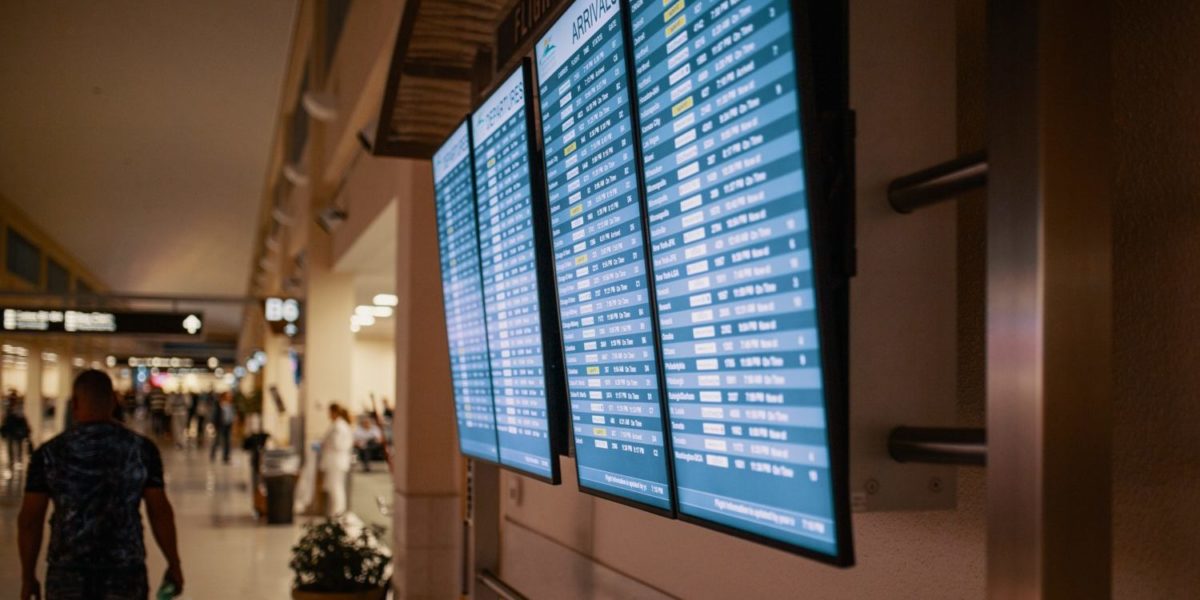
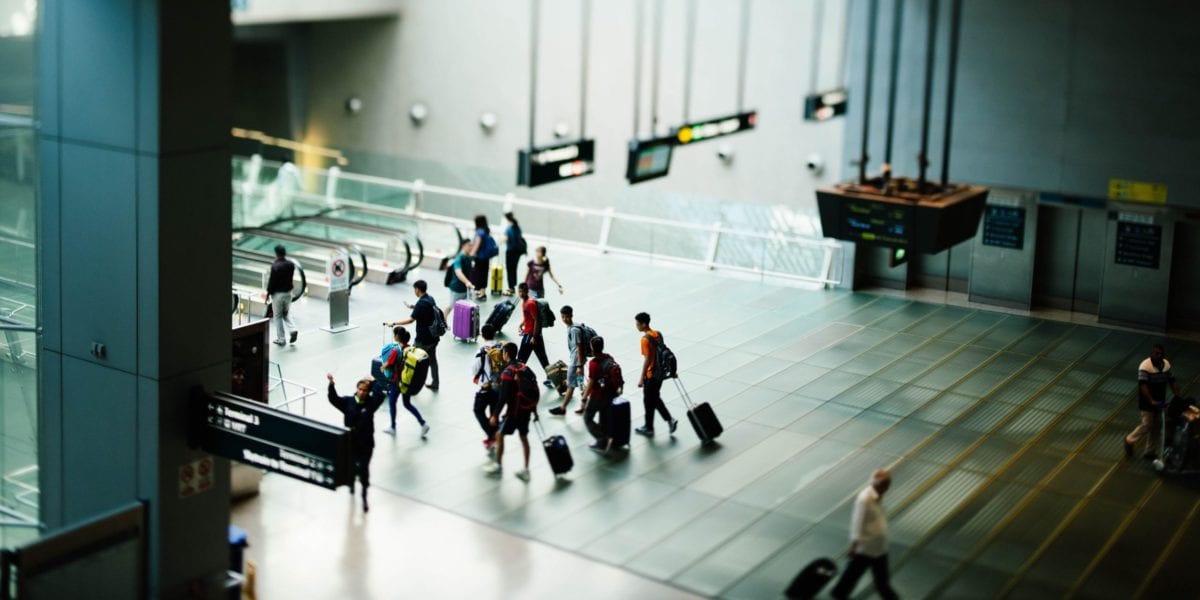
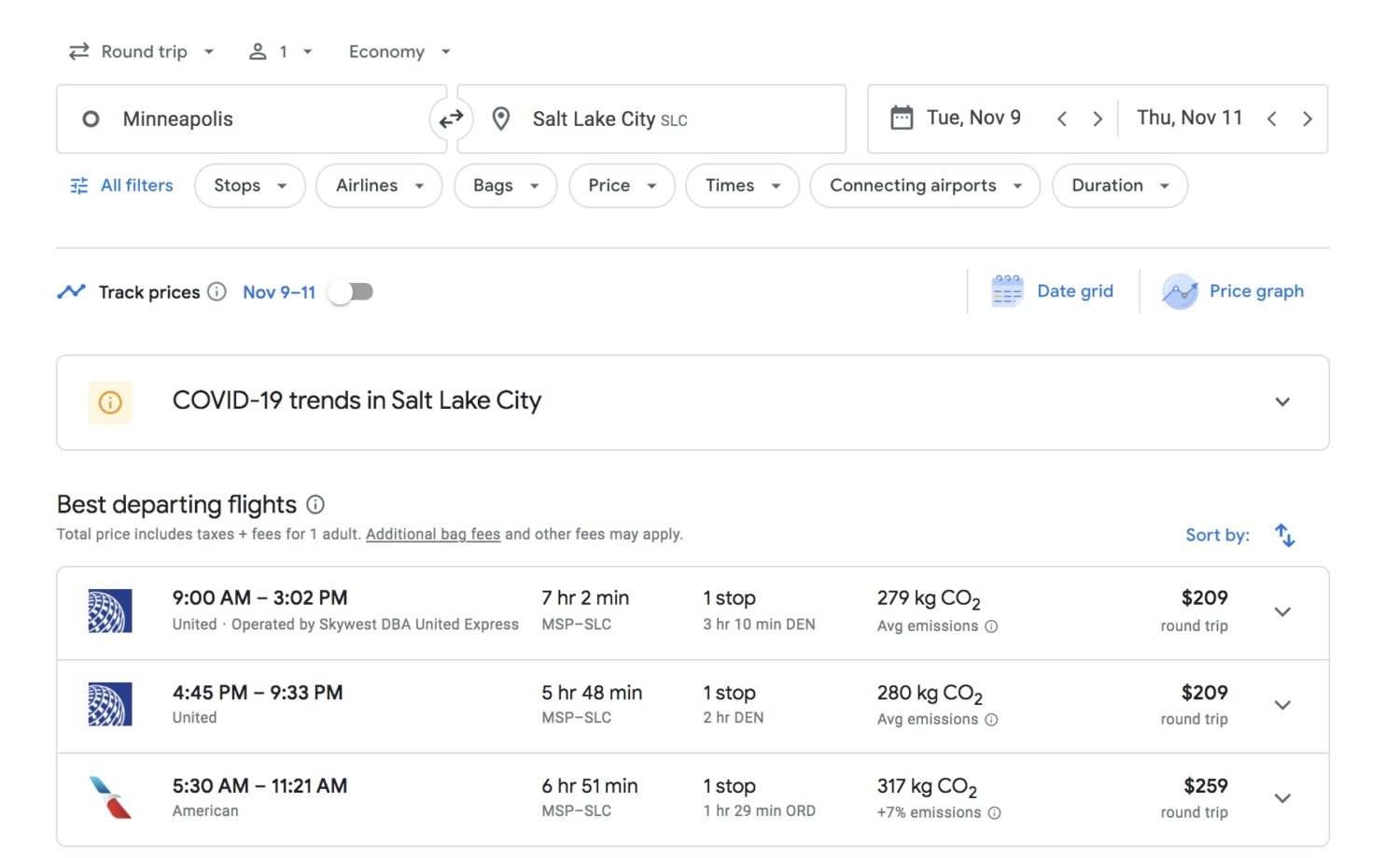
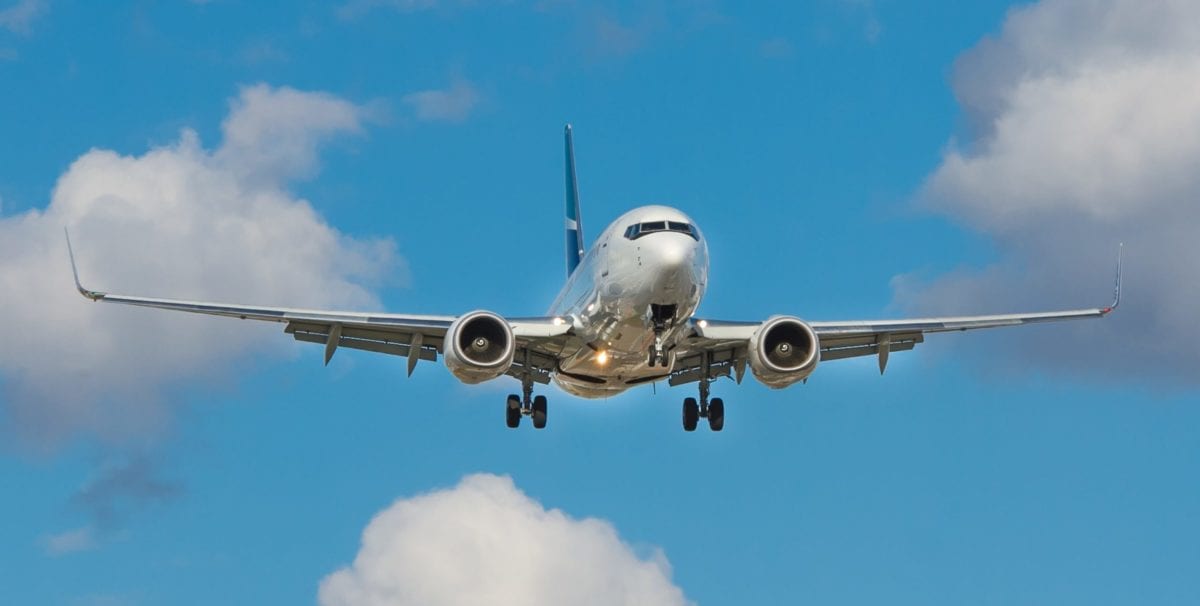
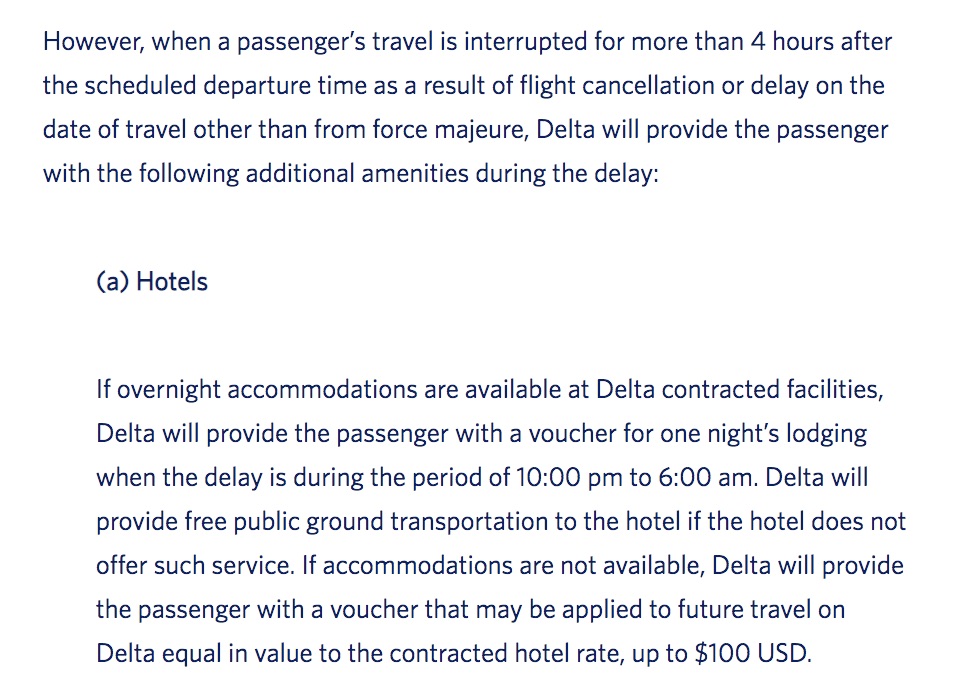

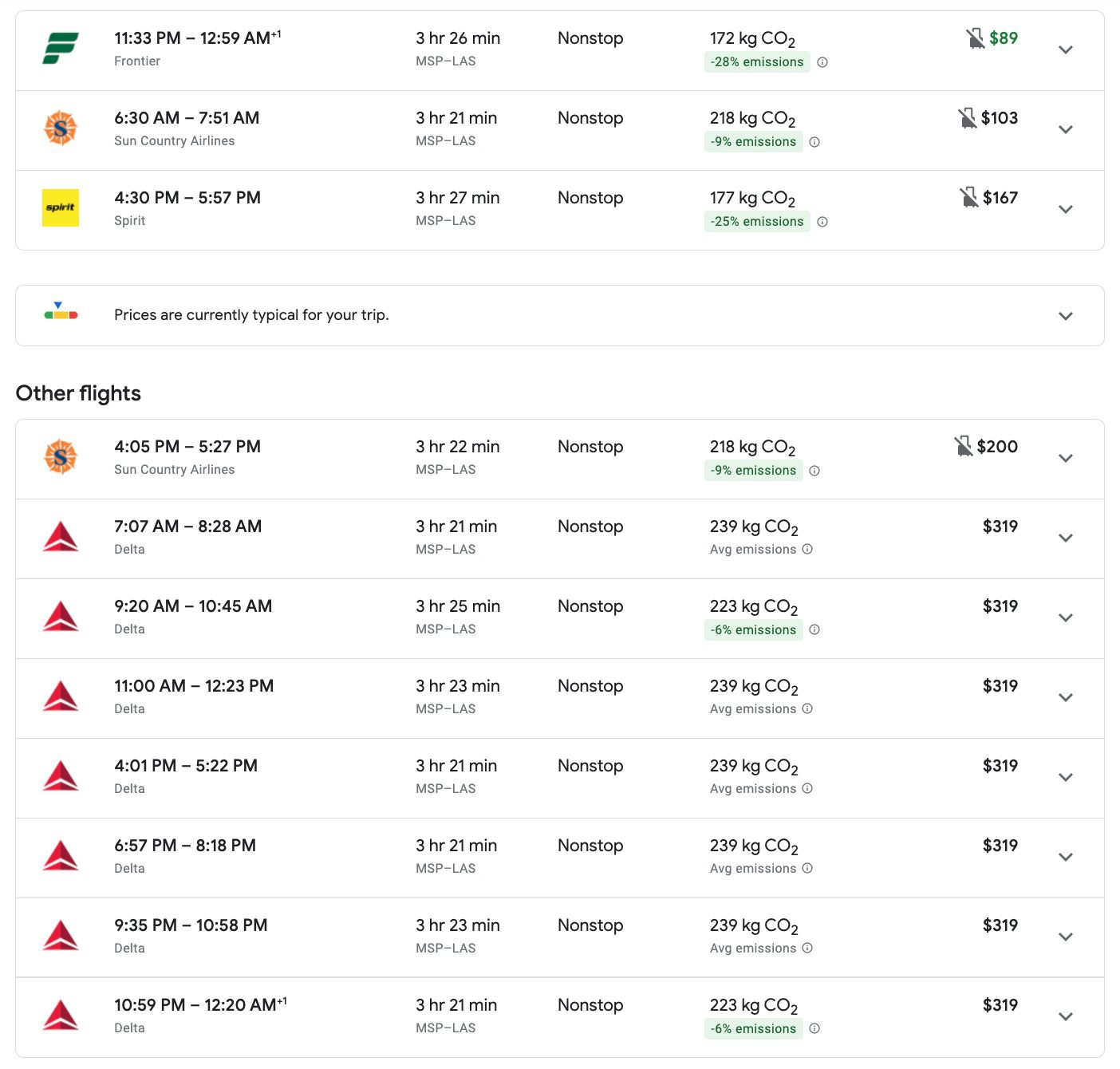
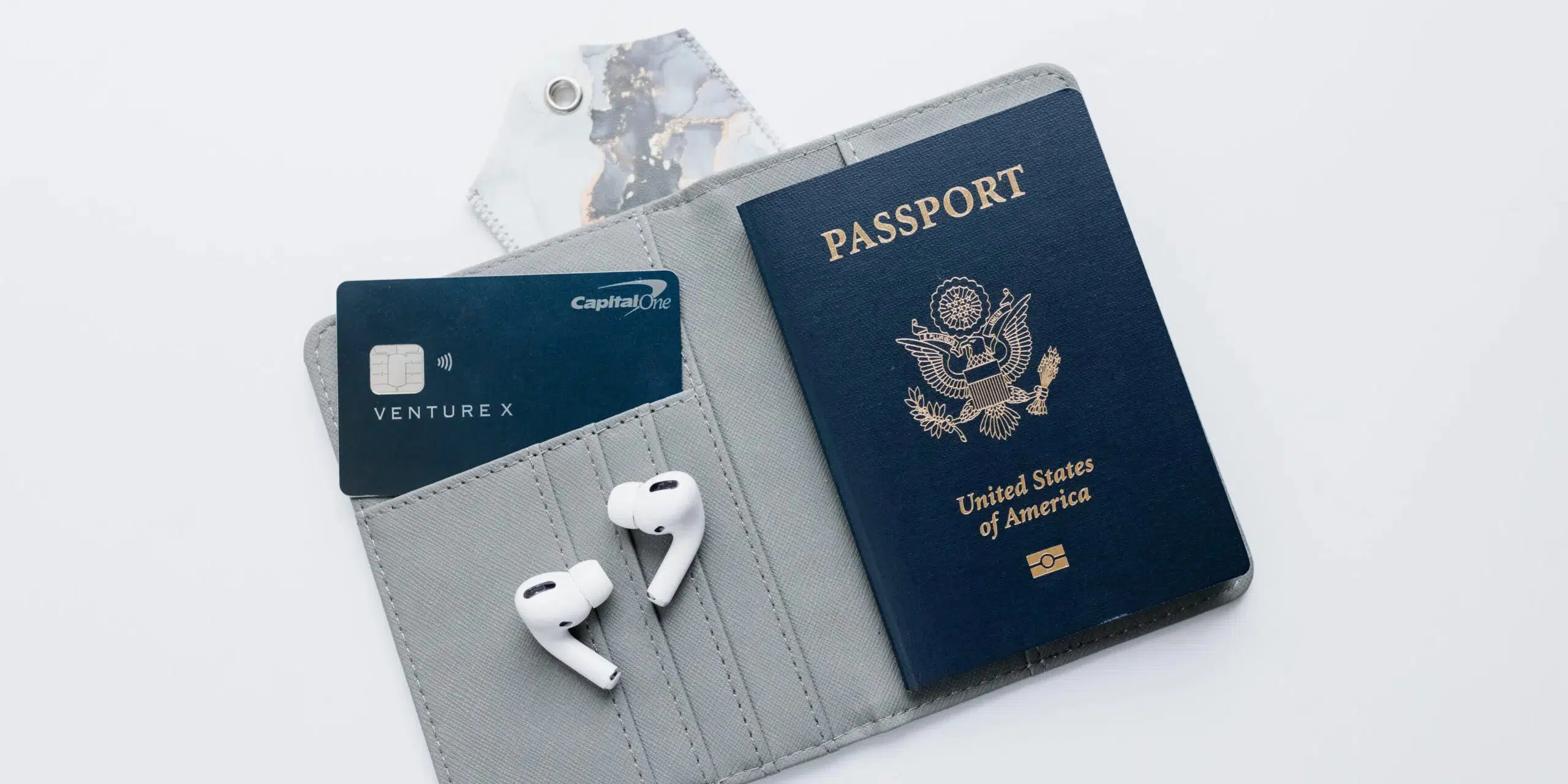


Great advertising that masquerades as an article! I’ll leave aside the shilling for Chase et al, and just focus on the realistic portions of the post: travelers putting up with this bullshit from airlines and airports is WHY things have gotten this bad.
The Constitution of the United States expressly forbids the federal government from denying the right to free travel to any American without due process of law. How the TSA decided they can become the arbiter of who flies and who doesn’t is a bit of a puzzler, then. Couple that with arrogant airlines ENJOYING forcing customers to wear masks and gleefully decided that “You will be permanently removed from flights if you refuse to wear an unnecessary medical appliance,” and now the constant threats from the government that if you “Verbally harass” a TSA agent you will be subject to fines— excuse me, does the First Amendment say “unless you’re talking to a morbidly obese idiot promoted beyond his competence into an unnecessary job no one asked the government to do”?
During my masters degree in security management and counterrorism studies I discovered three important things:
1. The TSA has no right to exist and is an unlawful arm of the government.
2. The TSA has never stopped a terrorist, and never will because the “regulations” they enforce are capricious, arbitrary, largely unnecessary, unconstitutional, confusion, and rarely symmetrical even from gate to gate within the same AIRPORT, much less congruent across an entire COUNTRY of airports.
3. Airlines LOVE to pretend that they have unofficial support of the TSA to enforce whatever asinine policies their little heart desires.
When you stop feeding the beast with your tax dollars (Do NOT vote for ANY member of the government who intends to give the airlines YOUR money. It’s not worth it!) and stop flying with these assholes, they MIGHT start making changes.
Until then, you can call for all the rights you want. Airlines will never listen. I had an Alaskan Airlines customer service representative threaten to deny me boarding in Seattle three weeks ago because I called her out for sending an employee on break while there was a three hour long line and people were missing their flights. For some reason when I pulled out my phone and asked her to repeat her threat on camera, she just walked away. Airlines are run by assholes, staffed by assholes, and tolerated by idiots.
Alaskan offered me a $50 coupon for the “inconvenience” of having a scumbag treat me with scorn and threaten me with denial of boarding after I stood in her line and watched her chat with a coworker for over seventy minutes while at least four customers around me missed their flights because of it. You think that industry is going to change because someone pounded a gavel and demanded “rights” when they don’t even follow the CONSTITUTION?
Ha. Nice try.
My daughter, son in law and granddaughter were booked to fly from their home city of Wellington, New Zealand to visit us in Bangor, Maine, with United as a companion airline with Air New Zealand. Everything was all set. Nice two month vacation from September through November. Then they’d return home. Today everything was canceled by United! My daughter called me, freaking out, in tears. I got her to take some deep breaths and told her that we’d try to get this back on track, even if she couldn’t get an airline to take them directly into Bangor, Maine. Now I’m reading, reading, reading, all the things people have said here and am wondering if any of you can give me some suggestions to help my daughter get their trip back on. Ideas anyone?
Haha….I’m doing the same thing!!! I am waiting on hold for American that just canceled a flight for tomorrow morning.they offered one for the following day with layovers, even though we paid for a direct flight months ago to make sure we would get a direct flight. Maybe I need to start flying with another carrier
Great article. Perfect for reading as you wait on hold with an airline customer service rep–LOL! Thanks, Kyle, for all the helpful info. 🙂
A decade ago we stopped flying during Thanksgiving and the two weeks of Christmas and New Years and drive instead, even cross country. We rent a really nice hybrid car and take a few extra days off and drive…we even throw in some nice hotel stays and really good meals out. Between weather, too many passengers, illness spreading (non COVID) it was hands down the Best. Decision. Ever.
We jump back on planes around the second week of January.
I feel for everyone caught up in this mess, especially those flying the likes of American, Sun Country, etc. Granted Delta is having issues as well, but here is the difference: They take of their customers. Yes, they struggle with hold times, short staffed agents, etc but they are customer focused and will stop at nothing to ensure you’re taken care of. The majority of the other airlines, they don’t care. You’re on your own. I can’t believe the tweets I am reading from Sun Country passengers today from their most recent meltdown that begin yesterday and continues today and again their software. Time to get a new software provider! They do everything on the cheap and this is the result.
Always book Delta, especially over the holidays and, should challenges surface, you need an airline that will take care of you.
Whatever you do, don’t fly American, Sun Country or Allgiant. Unless you don’t care when you depart/arrive.
Good to know! I have Delta app and will upgrade to Delta club by next year. I came upon this thread after Delta had large cancellations just recently
Just had my flight canceled with Delta JFK to FLL. They rebooted me on a flight 6 hours later with 2 stops expanding my travel time to 16 hours for a 3 hour nonstop flight. Found a nonstop with them that had room 3 hours after mine but had to call customer service to get switched to it, airport agents gave me a $15 food voucher and said tough luck. I got a terrible double espresso for $9 with the credit. Had to call and be transferred to 3 mangers to get any king of compensation, got $100 credit for my $350 flight. After which I told everyone in line don’t take no for an answer and told them what I got. The agents were not happy with me. I even told another lady on my flight about the other nonstop with room on it because they had delayed her until 7pm that evening! Tell me how that’s great customer service and looking out for people! Worst airline I’ve ever flown! There’s a reason Delta has the highest rate of overbookings as well! Terrible airline with terrible customer service! So glad we bailed out the airlines to the tune of billions of dollars to keep staff on during the pandemic only to have them lay people off and do stock buybacks with it.
American is the worst! My flight non-stop MIA-MSP got canceled last week. I managed to get back to ORD knowing that somehow I could get back to MSP. However once at ORD American told me that I was on my own to get back to MSP unless I wanted to hang out in Chicago for a week or so- tough luck, nothing they could or would do for me. Got notice of the air fair refund from American today. $13, yes I kid you not $13. They WILL issue you a refund of any portion of the unused ticket, but THEY decide the calculation.
American claims they don’t have to provide refunds for weather-related delays and cancellations, but my Dallas to San Diego flight was delayed 12 hours because weather held up the plane coming in from Philadelphia. Isn’t everything a weather delay?
At a certain point, the gravity of these cancellations makes it clear that the problem is larger than weather. Then again, I wouldn’t put anything past AA or any airline…
Air Alitalia cancelled all the flights out of Rome (and they were going out of business in October) and we were stranded there after our vacation out of Malta (we flew on air Malta to Rome ). They rescheduled us for the next day but we would miss work and we learned by a quick google search that they had cancelled for the past week so we didn’t want to wait. I quickly searched and all tickets were $2000+ but I was able to transfer some chase sapphire points to United and was able to book 2 tickets with points on the next flight out of Rome back home to Washington DC. 😊
I filled out the online form for a refund but who knows if we will ever get it!